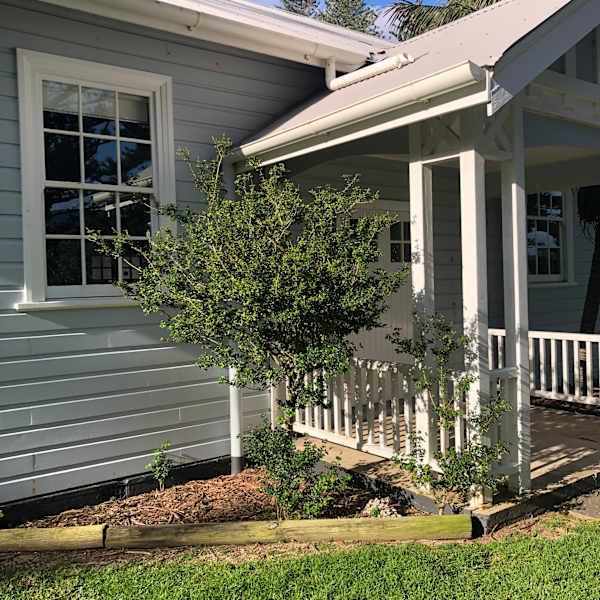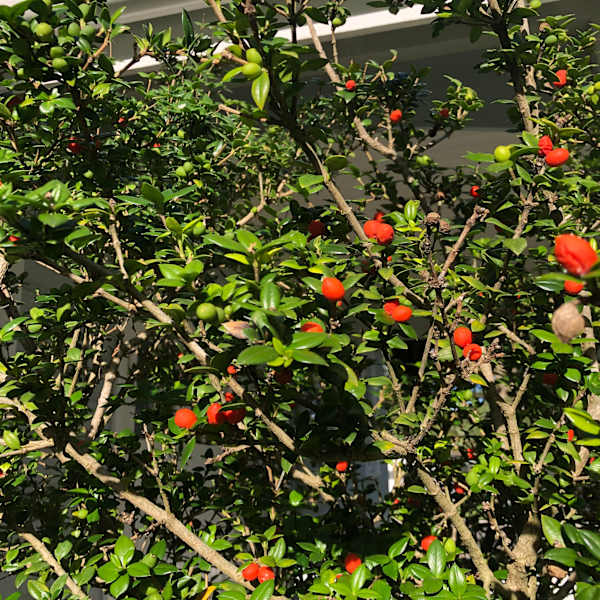A week's holiday on Lord Howe Island, thanks to a wonderful raffle prize, has given me a bit of an insight into the vegetation and ecology over here, and how it relates to those of Eastern Australia, Southern Africa and the Pacific islands.
One of the most striking plants I saw is incredibly rare in the Illawarra, but plentiful on Lord Howe and equally so in coastal north-eastern New South Wales such as Coffs Harbour and Port Macquarie. The Prickly Alyxia (Alyxia ruscifolia), also known as the Chain Fruit, is a plant I've written about here once before, and it is really so attractive it's worth featuring again.
Its dark green, pointed rosettes of leaves, beautifully scented jasmine-like flower balls and chains of cheerful orange-red fruit are all notable and appealing features.

Unfortunately in the Illawarra region, there are only one or two records of Prickly Alyxia, from the Mount Nebo area, and these are all rather dated; the species has not been spotted locally in recent years.
I've tried to find local plants a couple of times without success – it's possible that any remaining specimens have died during drought, been killed by grazing animals or inadvertently cleared by humans. Despite Prickly Alyxia being elusive in the Illawarra's natural settings, some local propagators have kept growing it in cultivation.
I was surprised to find that Lord Howe Island, some 12km long and 2km wide at its widest point, is home to two other Alyxia species, both of which are endemic, meaning that they don’t occur anywhere else in the world.
These other species are both vines, with a shrub-like habit when young, and neither has prickly leaves. Both do have the appealing clustered flower heads characteristic of Alyxias, somewhat larger and more striking than those of A. ruscifolia.
The fruit of both endemic species are black drupes. The more common and accessible of the two vines, A. lindii can be growing on the ridges of the lower island hills. And the other, rarer, species, A. squamulosa, is only found on exposed ridges off the island's two very tall mountains, Mount Lidgbird and Mount Gower. I wasn't able to see A. squamulosa, but did spot a few A. lindii on assorted island wanders.
But back to our local Alyxia, here’s a picture of the fruit showing their vivid orange-red colour and the beginnings of some ‘chains’, though in this case chains of only two fruit. I’ve seen pictures of plants where the chains are four or five fruits long, but didn’t spot any in the flesh on this trip. It seems from Ian Hutton's excellent Field Guide to the Plants of Lord Howe Island, that on the island, Prickly Alyxia generally only produces a couple of flowers in each inflorescence, which is quite different from how the species performs in Illawarra, where it often produces an inflorescence with 8-10 scented flowers.

I try not to repeat plants, but sometimes the temptation is irresistible. Back to normal service next week!
Emma Rooksby is the coordinator of Growing Illawarra Natives





